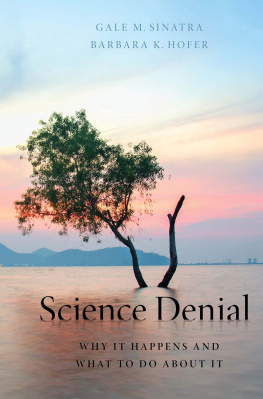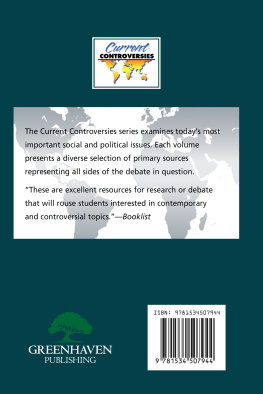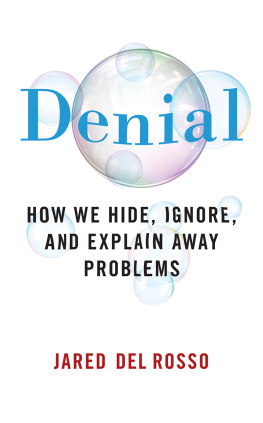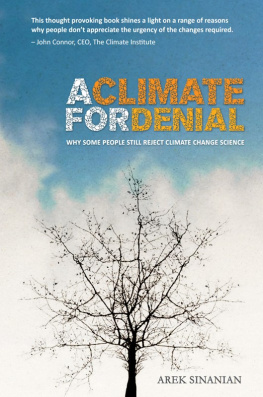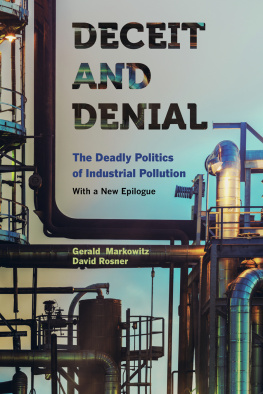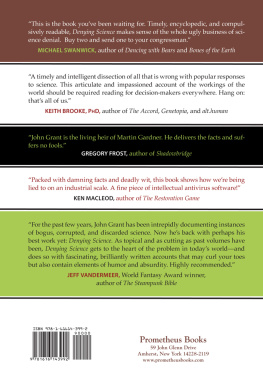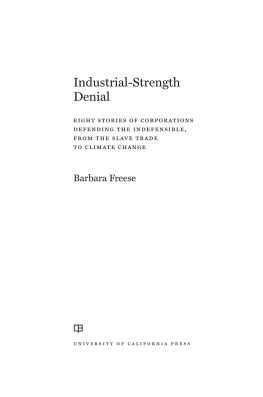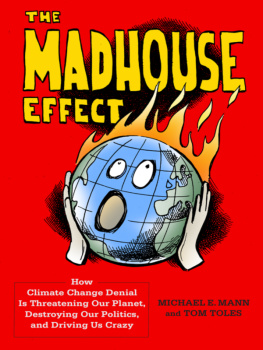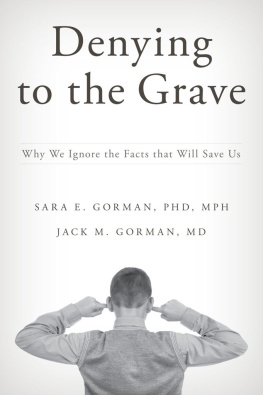Science Denial

Oxford University Press is a department of the University of Oxford. It furthers the Universitys objective of excellence in research, scholarship, and education by publishing worldwide. Oxford is a registered trade mark of Oxford University Press in the UK and certain other countries.
Published in the United States of America by Oxford University Press
198 Madison Avenue, New York, NY 10016, United States of America.
Oxford University Press 2021
All rights reserved. No part of this publication may be reproduced, stored in a retrieval system, or transmitted, in any form or by any means, without the prior permission in writing of Oxford University Press, or as expressly permitted by law, by license, or under terms agreed with the appropriate reproduction rights organization. Inquiries concerning reproduction outside the scope of the above should be sent to the Rights Department, Oxford University Press, at the address above.
You must not circulate this work in any other form and you must impose this same condition on any acquirer.
Library of Congress Cataloging-in-Publication Data
Names: Sinatra, Gale M., author. | Hofer, Barbara K., author.
Title: Science denial : why it happens and what to do about it / Gale M. Sinatra,
Barbara K. Hofer.
Description: New York : Oxford University Press, 2021. | Includes
bibliographical references and index.
Identifiers: LCCN 2021004425 (print) | LCCN 2021004426 (ebook) |
ISBN 9780190944681 (hardback) | ISBN 9780190944704 (epub) |
ISBN 9780190944711
Subjects: LCSH: ScienceSocial aspectsUnited States. |
SciencePolitical aspectsUnited States. | PseudoscienceUnited
States. | DisinformationUnited States.
Classification: LCC Q175.52.U6 S56 2021 (print) | LCC Q175.52.U6 (ebook)
| DDC 500dc23
LC record available at https://lccn.loc.gov/2021004425
LC ebook record available at https://lccn.loc.gov/2021004426
DOI: 10.1093/oso/9780190944681.001.0001
To my nephew Nick, the scientist
GMS
To my grandsons Fox and Leo, budding scientific thinkers
BKH
Contents
Science denial, doubt, and resistance have been persistent and growing problems in the United States, as well as in other countries. At no time, however, have the consequences been as deadly as in 2020, with a global pandemic ravaging the worlds population, spreading rapidly when unchecked, fueled by denial of its lethality and the steps needed to contain it. At the same time, the effects of climate change continue unabated, threatening life on this planet. We have never felt more passionate about the need for this book and our desire to help others make sense of the psychological explanations for science denial, as well as learning how to address it.
The day we submitted a draft of this book, February 25, 2020, the US Centers for Disease Control and Prevention (CDC) alerted the nation to the potential community spread of the novel coronavirus. At that time only 14 cases had been documented in the United States, with the first US case confirmed more than a month earlier on January 20. When we drafted this preface in mid-June 2020, the world had exceeded 8 million cases, with a full quarter of the casesand deathsin the United States, which has only 4% of the worlds population. A reported 22 states were seeing their highest number of positive tests of COVID-19, most likely as a result of reopening restaurants, gyms, and other businesses, in spite of what scientific interpretation of the data suggested. Now, just 9 months later, in March 2021, the world has had 120 million cases, and the United States continues to lead the world in the spread of the virus, even as increasing numbers of people are vaccinated. More than 500,000 in the United States have died. Yet some elected officials have failed to model the most basic protective behaviors of social distancing and mask wearing recommended by the CDC. Throughout these months of the pandemic, science denial has indeed become deadly.
The scientific and medical community warned that the virus was dangerous and that unprecedent steps were immediately necessary to limit the potential catastrophic impact. The United States was slow to act, however, in terms of testing, contact tracing, travel limitations, and orders to stay at home. Scientists quickly worked to make sense of the novel coronavirus and the disease it causes, COVID-19, with an understandable degree of uncertainty in the epidemiological modeling and in the early advice about prevention, with no clear-cut predictions about when vaccines and treatments would exist. Yet their growing knowledge did not translate to policy at the national level. Within weeks of the onset of the virus, a barrage of confusing, misleading, and inaccurate information spread faster than the virus itself. Misinformation was coming from all corners: politicians, newscasts, social media, dark web conspiracy theorists, and even the presidential briefing room. Never has it been so imperative that individuals have the skills to understand scientific inquiry and know how to evaluate what they read and hear. Nor has it ever been more critical that policy makers listen to scientists and make use of scientific data to guide decisions to protect their communities, states, and countries. The first vaccine received emergency approval in mid-December 2020, others have followed, and the rate of vaccinations grows. Yet worries persist about whether enough citizens will choose to be vaccinated, a deeply concerning problem when such decisions affect others lives, not just ones own.
As the virus has raged, the differential and more damaging effects on those who are Black, Hispanic/Latino and Indigenous have become increasingly evident. Disparities in access to quality healthcare and overrepresentation in jobs deemed essential exposed the impact of systemic racism yet again. Racial gaps were evident in all age groups and most pronounced in middle age, with death rates at least 6 times higher for Black and Hispanic/Latino individuals than for Whites. (Such differences also exist for Alaska Native and American Indian groups compared to Whites, but incomplete data prevented analyses at the same level.) For too long, science has ignored issues of structural racism within the discipline and the practice of science. The need for a more socially just science that would examine such inequalities is paramount.
As the virus wreaks havoc on the world and individuals both deny its existence and avoid preventative measures, we are increasingly aware of the need to explore and interpret the conditions for science denial, doubt, and resistance. In this book we shed light on key psychological reasons that have been the subject of our research independently and collaboratively over the years: cognitive biases, evaluating science claims, science knowledge, motivated reasoning, social identity, beliefs about knowledge and science, and the effect of attitudes and emotions. We also offer action steps for individuals, educators, science communicators, and policy makers to support public understanding of science.
The idea for this book came from our individual and collaborative work over two decades. Many long conversations at conferences and meetings about public understanding and misunderstanding of science, coupled with our complementary research agendas in the psychology of thinking and learning about science, led us to collaborate on an article for Policy Insights from the Behavioral and Brain Sciences, entitled Public Understanding of Science: Policy and Educational Implications. That article, others, and many conversations since led us to the desire to speak to a broader audience than those who read psychology research journals.

